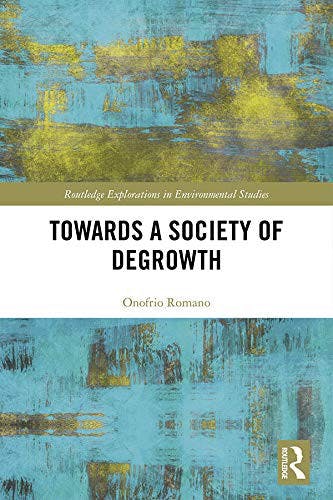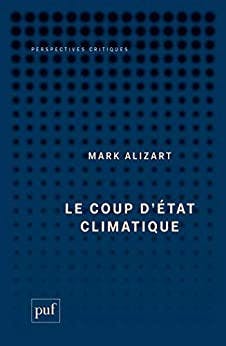Or what a fundamentally critical view of degrowth theory teaches you about the current crisis, and about capitalism in general.
I’m no degrowth fanboy, quite the opposite actually. Degrowth’s narrative usually starts by evoking a catastrophic threat, or even a collapse, and many people firmly believe that covid-19 is a pre-configuration of a climate catastrophe, that nature talks to us. Which is a very anthropomorphic view of the world. While I agree that systemic saturation is threatening the (supposedly) limitless growth trajectory, the degrowth theory seems to me depressing and unusable at scale.
It’s like hoping for a world of vertuous knight monks. Never going to happen in society at large. The world needs a change, but wishful thinking won’t help much. Modernity has never encouraged having more for having more, but having more for being better. And so, the Latouchian approach to change won’t help, just by trying to convince we need to have less. In its effects it’s like criticizing a tsunami or a cyclone.
As for the idea of big collapse, it’s of no more practical use, since if we believe in it, there’s no need to act: let’s just watch the last sunset.
 What degrowth theory inspires me
What degrowth theory inspires me
Whatever your initial beliefs on the subject, you should have a look at Onofrio Romano’s book, Towards a society of degrowth (Routledge, 2019). As an italian professor of sociology at the University of Bari, he speaks an original and profound critique on the conformism of the degrowth alternative. Which actually makes it much stronger, and resonates with the covid-19 and climate crisis.
The birth of homo crescens
The individualization of the subject
History is full of paradoxes. Marshall Sahlins has an amazing theory that stone age was an “age of abundance” and that we, as modern humans, live in an “age of penury” (despite all our riches). In ancient civilizations, the individual belongs to a small circle, the family, the clan, the village, and doesn’t have a modern level of self-consciousness that makes him a fully discrete and autonomous entity. Around the 17th century, a fundamental change happens: due to the growth of food production and to the better general hygiene conditions, the mortality index decreases and the population rises (remember Malthus?). Traditional behavioral codes are unable to cope with the unheard of necessities of the times. Society needs a new type of conformity, the inner-directed individual (Riesman, 1950). At the same time, a new public sphere emerges: the individual builds himself against the principles of social coerciveness.
Growth is only a symptom
The Brahmanic tradition made a classification of man’s goals : pleasure (kama), interest (artha), duty (dharma) and dissipative liberation from all aims (moksha). But modern societies have mostly optimized for artha, self-interest and ultimately growth. Weber explained growth as one of the main distinctive feature of modern western capitalism, unheard-of in the world’s history.
The early utilitarists, Bentham (1839) in particular, recognized the multiplicity of human values and goals. The shifting idea, however, is that the best of all possible worlds is the one that allows everyone to better pursue its own goals. The invisible hand described by Smith will do the rest. The individualized subject has to respond to a new set of binding injunctions, a rationalization of behavior. The newly created nation states provide central administrative institutions that “protect the individual against attacks, against a brutal use of physical force; but at the same time, the individual is forced, in his turn, to repress the explosion of his passions, the aggressive impulses against the other” (Elias, Civilizing Process, 1969). A new area of cartesianism. The ideological genesis of need takes place. Economic usefulness becomes the universal ruling principle between nature and culture, and the fulfillment of the individual comes from the production and consumption of uses, potentially limitless. The pandora’s box has just opened.
The individual, released from any collective obligation of a magic or religious nature, “freed” from his archaic, symbolic or personal ties, finally “privatized” and autonomous, defines himself by an “objective” nature transforming activity — labor — and by the destruction of useful values for his profit: needs, satisfactions. (Baudrillard, 1972)
An important conclusion is that growth is the result of an historical and contingent process. A symptom of modern societies and individualization. An invisible downside of the “liberty, equality, fraternity” motto (or “let it be” if you’re more rock & roll).
The defense of life itself, regardless of the meaning of life
We’re coming to the core of Romano’s critique. He makes the (somewhat surprising) claim that growth and degrowth are two sides of the same pattern. We’ll see that’s a consequential statement.
It makes degrowth alternatives a mere variation of the social imaginary of utilitarianism, and one that is way less enjoyable that our current standard of living. Who is ready to bet that people, the same that express an understandable need to change our model, will freely choose not to fly to paradisiacal locations for their next vacation after the containment is over? It’s too good to pass (myself included, as I’m no monk).
The degrowth narrative is centered around the fact that growth is a threat to life. To survival. The preservation of living beings (from humans to whales, but still mostly centered on humans) appears such an obvious goal that it is not questioned. The covid-19 crisis exemplifies the strength of that idea, beyond what anyone would have thought even a month ago. Who would have imagined a massive economic shutdown, at planet scale? It’s not an obvious move. The IMF, the FED, the ECB are not exactly known for their anti-globalization or environmental activism. The fact that even Trump, despite his initial (and now recurring) wavering, accepts the containment should make historic headlines.
The defense of life for life’s sake, regardless of and before any other issue, is launched as a value in itself, an indisputable moral imperative, that does not need justification whatsoever. And by doing so, we fall into the trap of anti-abortion extremists (who prefer to call themselves pro-life). This defense comes deep from the neutralitarian root of utilitarian philosophy. Modernity demands that political power (and even more so for populists) never interfere with the existential individual project:
Our era no longer supports failure, neither offense, nor obstacles. From Enlightenment, who thought that happiness on earth was possible, we went to the imperative of being happy. The coronavirus is a stroke of fate experienced as an offense. (Bruckner)
This better explains our current decision making process. Politics cannot but have a function of mere guarantee for preservation (life for life’s sake) or better, for cultivation (growth for growth’s sake) of the organic life of citizens. Yet, a country is really democratic only if it debates sense and if it allows for a collective idea of what a “good society” is. It is not democratic if all that it does is bend to the only goal of preserving one’s own existence.
Why survive? The theory of “dépense” (Bataille)
And so Romano asks: why survive? His answer is grounded in Georges Bataille’s theory of dépense. I won’t explain it in detail here, because it’s really different to classical economic and environmental thinking and would require a proper analysis. Romano warns us: we shouldn’t stop at the existentialist controversies that surround Bataille, because his thinking is properly revolutionary (in the galilean sense). It is counter-intuitive to the common sense.
For Bataille, the issue is not that we don’t have enough resources. It’s that we have too much (the sun provides unbelievable amounts of energy). We don’t know how to spend the surplus (at least we don’t know how to do it well). This is an attempt to link the general economy to energy dissipation, while neoclassical thinking makes as if thermodynamics did not exist.
Ancient societies spent that surplus in sacrifices or in glory, in religious asceticism or festivities, in war or in peace. If we fail in how we use it, we are unable to create the meaning of our life. We are merely a biological machine whose movement has no destination.
Economic theory needs a reboot
Romano spends the rest of the book explaining how to rethink degrowth in the light of dépense, argumenting for a verticalization of society to counter radical individualization. I will leave that to the interested reader. This opens up groundbreaking economic re-theorizing.
What to do next? (ClimAct Up)
We’re pouring money in vain, because it lacks meaning
One way is to simply observe a type of verticalisation (or socialisation, that could be debated) of the economy. It is happening now, due to covid-19. But I would argue that once again, we do it for the wrong reasons. We are simply coping with our usual bias: individualization and life for life’s sake.
The strategy works only as an artificial breathing device in order to keep the now-exhausted model of society alive.
So we should collectively aim for a higher, more meaningful goal. In that respect, Mark Alizart provides an interesting essay, the climate coup (“Le coup d’état climatique”, in French) that complements Romano’s ideas. His central thesis is that “carbofascists” are destroying the planet on purpose, for their own interest. While there’s no proof of what he describes (one could argue that they’re just stupidly blind to the facts and prefer the selfish joys of leaving the environmental burden to future generations), the rest of the book is more interesting, and calls for collective combat. What he calls a green army, with much more ambition and sense of urgency than today’s limited mitigation strategies.
If we had fought the hole in the ozone layer by inviting people to stop using fridges, we would all be dead by now. (Philips)
The fight against climate change needs a Clausewitz, not a Bossuet
Alizart calls for a strategy similar to what ActUp did to fight AIDS — well pictured in the amazing film “120 battements par minute” — , in a pretty convincing way (modulo some details). Any real change requires:
A common front to unite people (and that’s why he thinks it’s important to name enemies, but Romano’s ideas could serve just as well).
Technology, to trigger a balance of power (akin to what Marxists did in their time, albeit at great damage for the environment). As controversial as it may sound, even contemplating the prospects of geo-engineering!! (a very dangerous all-in option, and all weighted nuclear fusion seems a much better alternative), his point is more argumentative: ecologists (as marxists in their time) don’t need to be convinced that these technologies will solve the problem, but science serves as a medium for a directed state of emergency. This is the apollo mission of our time.
Hope, because why would we put so much effort to get a soft apocalypse variant? Any alternative that gives less enjoyable prospects than our current state of affairs is doomed to fail.
Since USRR was no haven, there remains the central question of how this fight can be made compatible with democracy, and even how it can become its very cornerstone. A great challenge that should focus our attention.
If we really want change for whatever comes next, we need to completely reframe our economic thinking, for a more credible path to fight climate change and pandemics. Politicians (in the noble sense of the term) need to regain their predominance, finding concrete alternatives where normal politization has failed. We’re already committed to spending trillions of dollars and euros over covid-19, we might as well start acting like the scale of the climate issue we’re facing needs to be taken seriously. Even if that seems crazy to our classical self.
Sources :
 Onofrio Romano, Towards a society of degrowth, 2019, Routledge
Onofrio Romano, Towards a society of degrowth, 2019, Routledge
 Mark Alizart, Le coup d’état climatique, 2020, Presses Universitaires de France
Mark Alizart, Le coup d’état climatique, 2020, Presses Universitaires de France

